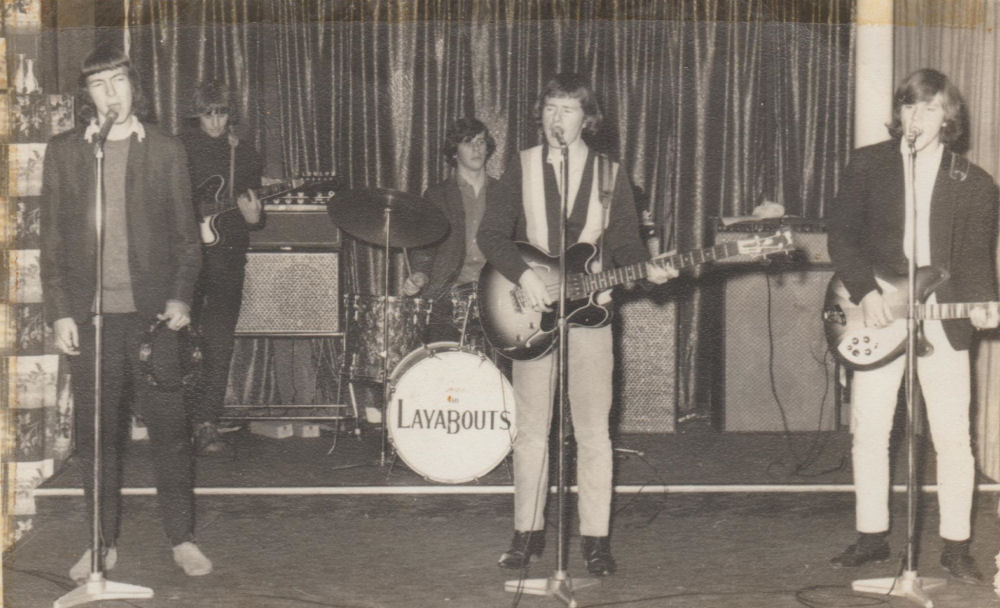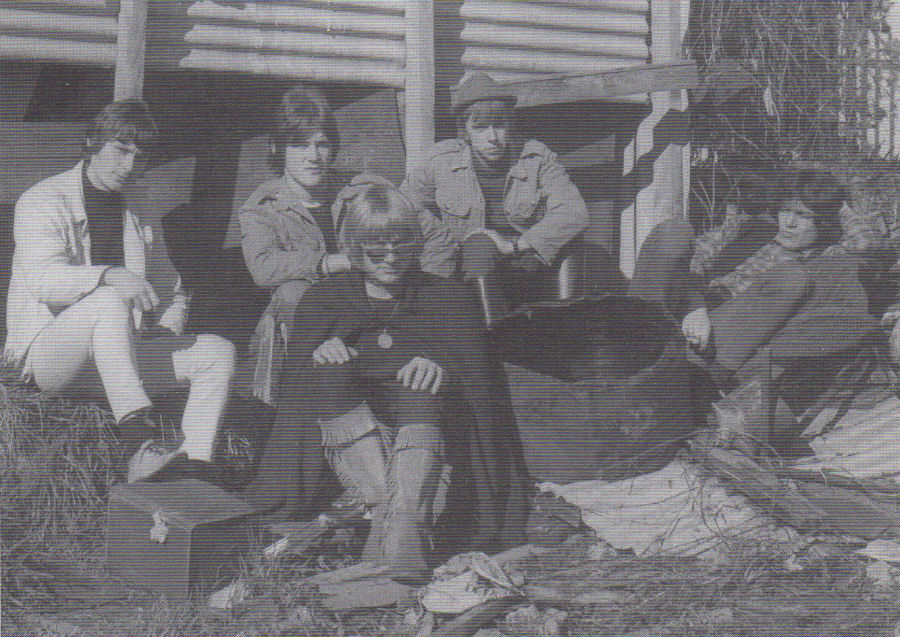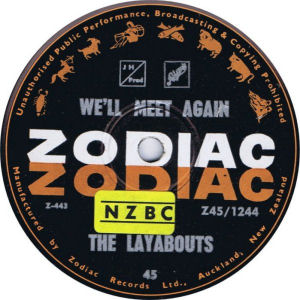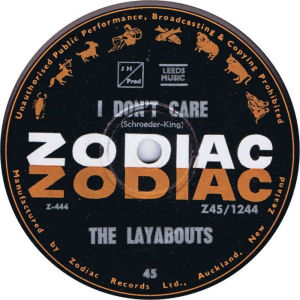
Layabouts at The Galaxie early 1966. L to R: Kieron Hales, Howard Johnston, Steve Hardy, Gus Fenwick & Mike Wilson.
Layabouts

Layabouts at The Galaxie early 1966. L to R: Kieron Hales, Howard Johnston,
Steve Hardy, Gus Fenwick & Mike Wilson.
Line-Up #1 1964/65:
Mike Wilson (Guitar)
Howard Johnston (Lead Guitar)
Gus Fenwick (Bass
Guitar)
Bryan Harris (Drums)
Line-Up #2 1965/66:
Mike Wilson (Guitar)
Howard Johnston (Lead Guitar)
Gus Fenwick (Bass
Guitar)
Steve Hardy (Drums)
Kieron Hales (Lead Singer) joined late 1965
Red McKelvie (Lead Guitar) joined early 1966
Line-Up #3 1966:
Mike Wilson (Guitar)
Bruce Sontgen (Vocals)
Dave Wright (Keyboards)
Ross Guineven (Bass Guitar)
Trevor Crump (Drums)
Line-Up #4 1967:
Mike Wilson (Guitar)
Gus Fenwick (Bass
Guitar)
Steve Hardy (Drums)
Mike Leyton (Vocals)
Dave Russell (Guitar)
Line-Up #5 1968/69:
Mike Wilson (Guitar)
Gus Fenwick (Bass
Guitar)
Glen Absolum (Drums)
The Layabouts were an Auckland group formed in early 1963 by three students from Selwyn College: Mike Wilson, Gus Fenwick and Howard Johnston. They practiced as a three piece for a while, before Gus moved to bass guitar and they added Bryan Harris on drums.
They played parties and church halls until their first big gig on new year's eve 1964/65 at The Shiralee where they supported Ray Columbus and the Invaders. They continued playing there regularly alongside Dave Miller and the Byrds and the Seakers / Rayders.
The Layabouts were different to other bands on the scene at the time. They were playing The Kinks, The Rolling Stones, The Pretty Things and The Downliners Sect and were probably the first band in New Zealand playing British R&B. At the time, everybody else was playing The Beatles, and the Merseyside bands, with some still playing Cliff Richard and the Shadows. It wasn't until the Dark Ages formed that another band started playing similar sorts of material.
Bryan Harris left the group in early 1965 and was replaced by Steve Hardy on drums. Bryan left to join the Action.
When the Pleazers arrived in Auckland from Australia, Eldred Stebbing, who had taken over the Shiralee in 1966 and renamed it the Galaxie, placed them and the La De Da's as resident bands. The Layabouts also spent the next year as support band at the Galaxie. Shane Hales was with the Pleazers at the time and his brother Kieron Hales was recruited in late 1965 as vocalist for the Layabouts. Howard Johnston left the band in early 1966 and was replaced by Red McKelvie.
In September 1966, Mike Wilson, Steve Hardy and Gus Fenwick went to Sydney as a three-piece. By November, Gus joined the Pleazers, who had returned to Australia, replacing Ronnie Peel, so Mike went back to New Zealand, where he formed another version of the Layabouts, by recruiting Bruce Sontgen, Dave Wright, Ross Guineven and Trevor Crump. They adopted a scruffy appearance and did not consider themselves to be a pop group, playing their music raw and loud.

The Layabouts #3 L to R: Trevor Crump, Mike Wilson, Bruce Sontgen, Dave
Wright & Ross Guineven
By late 1967, Bruce Sontgen had left the group to form the Boddys and was later to join the Apple, before moving to Tom Thumb as their vocalist in July 1968, before moving on to Highway.
Another version of the Layabouts soon formed in late 1967. The Pleazers had returned to New Zealand and subsequently broken up, so Gus Fenwick, Mike Wilson, Steve Hardy, Mike Leyton & Dave Russell got together and mainly played at the Galaxie nightclub. Mike Leyton, had been with the Sounds and the Merseymen, and Dave Russell, had been with the Invaders. When this version was over, Dave Russell joined the Mojomen.
The last version was Gus Fenwick, Mike Wilson and Glen Absolum. They played at the Platterack and the 1480 Village (formerly the Top Twenty) in late 1968 and early 1969. Glen Absolum was also a member of Living Force and Space Farm.
After the Layabouts disbanded, Mike Wilson joined with Gus Fenwick and Bruce Sontgen in Apple in 1969. Mike Wilson later played with Cruise Lane.
During their time, the Layabouts only ever recorded one single, "We'll Meet Again"/"I Don't Care" on Zodiac in 1966.


The Layabouts can also be found on the following compilations.